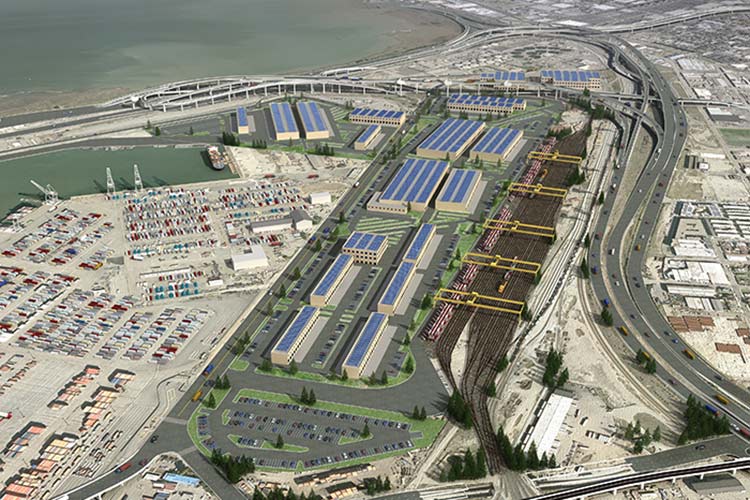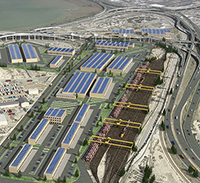How the coal-export wars came to Oakland
In seeking an alternative route to Asian markets, coal's path from Utah to China via West Coast ports has hit a snag: citizen activism. On the blog Legal Planet, Berkeley Law's Mark Belleville shares the backstory on a controversial plan for the former Oakland Army Base.

September 23, 2015

The OBOT is part of a larger redevelopment project at the former Oakland Army Base.
In seeking an alternative route to Asian markets, coal’s path from Utah to China via West Coast ports has hit a snag in Oregon and Washington, where citizen protesters have dealt setbacks to the plan. Now the action is in Oakland, where on Monday the City Council convened a six-hour special public hearing where nearly 700 people signed up to speak.
In a post on the blog Legal Planet, Mark (Buzz) Belleville — a teaching fellow with Berkeley Law’s Center for Law, Energy and the Environment — describes that contentious Oakland hearing and shares the backstory on how four Utah counties “came to contribute $53 million to the construction of the Oakland Bulk and Oversize Terminal” on the site of the former Oakland Army Base.
“The eyes of local residents, industry and activists nationwide are on Oakland City Council,” he writes, “as it considers whether it has the authority to stop Utah coal from passing through West Oakland to market and, if so, how to exercise that authority.”
Read Mark Belleville’s post on Legal Planet.